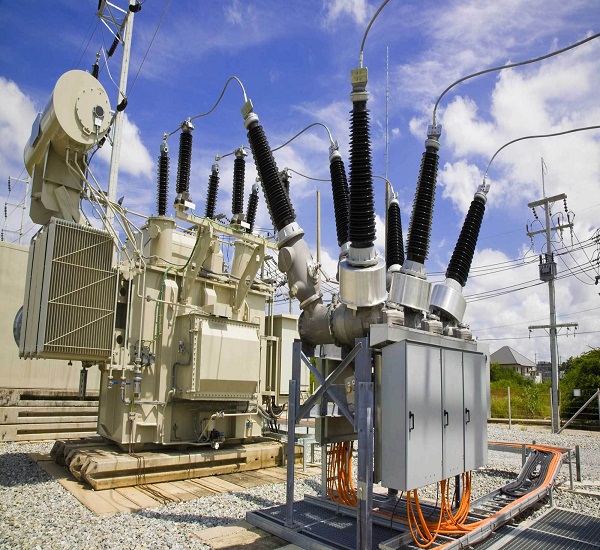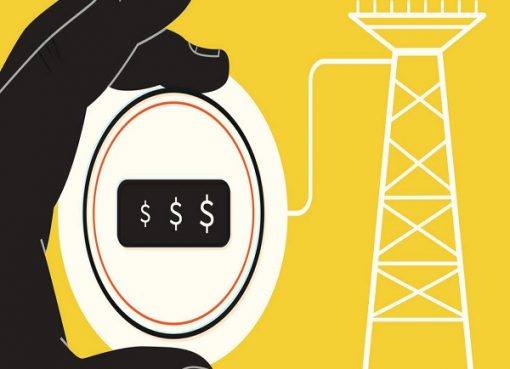What would have been the final driving of the nail into the coffin of electricity consumers in Nigeria with the new and higher electricity regimes was on Monday stopped by the leadership of the National Assembly.
At a meeting of chief executives of the Nigerian Electricity Regulatory Commission (NERC) and the distribution companies (DISCOs) with NASS leadership, it was resolved that the timing of the planned hike was wrong, given the global economic crisis arising from the coronavirus pandemic.
The new price hike, which would have taken off by July 1, would have seen Nigerians paying more for services they are not currently enjoying. It will now wait till the first quarter of 2021.
This intervention is prompt and commendable, though the wish of electricity consumers in Nigeria is the total abrogation of a new price regime until efficient, stable and reliable services are entrenched in the power sector.
Since 2013, when the Power Holding Company of Nigeria (PHCN) was unbundled and the subsequent privatisation of the power generation companies (GENCOs) and DISCOs, electricity consumers have had their necks pressed down by the murderous knees of these firms.
The average Nigerian electricity end-user is in bondage. He buys his own pole, cable and meter. He buys his own transformer or joins hands with the community, which is ultimately taken over by the DISCOs. Outrageous and indiscriminate bills are churned out every month without the meters read. Expecting regular electricity supply in Nigeria today is like climbing Mount Everest with bare hands: a mirage.
According to the NERC, over six million Nigerian households still face estimated billing and would have to contend with additional costs from the increased price of prepaid meters and the new price hike.
Last week, the World Bank approved a $750m loan for Nigeria’s power sector. It said the loan was for the recovery operation to achieve financial sustainability and enhance accountability in the sector. In releasing the loan, it explained that about 47 per cent of Nigerians do not have access to grid electricity and those who have access face regular power cuts.
It is expected that, with this latest injection of funds, the Federal Government will totally cancel the hike in tariff and concentrate on upgrading infrastructure and removing all the fundamental challenges crippling the sector. Without doing this, the new price regime, unfair and unjust as it is, will be counter-productive and is bound to fail, if it is allowed to be implemented by next year.
Right from the outset, the privatisation process was designed for failure as it was shrouded in secrecy. The audited accounts that should have revealed the degree of viscosity of liabilities or assests were kept away from the knowledge of potential investors.
This was so because the investors that government had made up its mind to hand over the power projects to were deficient both in financial muscle and in technical competence. The reward for handing over our collective assests on a platter of gold to incompetent bidders triggered the series of fraudulent bailout funds shortly after the takeover, which, sadly, has been sustained till today. Since they are incapable of turning around the deterioration of the privatised assets and add value to the chain, it has resulted in huge financial losses.
In the review of the sector in the first quarter (Q1) of 2020, the Federal Ministry of Power said Nigeria lost over N117.8 billiion to the unavailability of gas to fire thermal power plants and lack of transmission infrastructure, among other factors. Last week, during one of the periodic weeping and lamentation jamborees by the National Assembly, the Senate President, Ahmad Lawan, asserted that Nigeria loses N29 billiion annually to power outage.
Since 2015 when the Federal Government, through the Central Bank of Nigeria (CBN), provided N213 billion as Power Sector Market Stabilisation Fund to DisCos and GenCos, over N1.80 trillion has been committed in different kinds of bailout packages to the country’s floundering power sector.
As it is the norm in privatisation in other climes where it leads to improved efficiency of services, Nigerians had expected that stable electricity that would drive industries and enhance job creation would result from the sales. Sadly, the fundamental objectives of this process have not been met.
During the last National Assembly Public Hearing on Power Sector Recovery Plan, the Senate President acknowledged that government had been giving free money to the operators: “N1.8 trillion is a huge amount of money. Is it part of the Share Purchase Agreement that we should be given this kind of money or what are we supposed to do as a government? What is our obligation? Government cannot afford to just spend money that you hardly understand why it is given, “he noted.
At last Monday’s meeting of the NASS leadership with NERC, DISCOs and GENCOs, something remarkable that should give every Nigeria concern took place. The DISCOs admitted that they were not well prepared for the planned hike in tariffs. This admission is a clear indication of a present and future danger in the power sector. I am afraid, we are stuck in the mud and Nigeria needs to think outside the box, if we must wriggle out of this quagmire.
It is obvious that the power sector is deeply entrenched in corruption. Government owns 40 per cent of the shares while the investors own 60 per cent. Why would government continue to bail out the DISCOs and GENCOs that hold majority shares? If we go with this realisation, then there are a few things that should be urgently done to salvage the situation.
One, emergency should be declared in the sector. This is in line with the recent resolution of the House of Representatives calling on President Muhammadu Buhari to do so. He should summon the courage and do the needful.
It defies every logic and reasoning that Nigeria, endowed with large oil, gas, hydro and solar resources, and with the potential to generate 12,522 megawatts (MW) of electric power from existing plants, cannot boast of 4,000MW at any given time. This is compared to 2001 when, under the defunct National Electric Power Authority (NEPA), the generating capacity from four thermal and two hydro plants was 6,200MW, a period when we had fewer industries.
In reality, we are not making any progress even with the privatised power assests. Lack of reliable and steady electricity has stifled economic activities, private investments and job creation. Thousands of small-scale and medium-scale industries are closing shop every day with attendant job losses. These are supposed to be the drivers of our economic development. If we fix our power problems, we woul have solved 70 per cent of our economic problems.
The expected state of emergency should cancel the privatisation and new investors with technical capability and financial liquidity invited to take over. Anything short of outright cancellation of the deal will not yield the desired results. Such an arrangement will continue to dip hands into our national treasure and hand over to these investors in the form of bailout funds.
Nigeria has become a laughing stock in the world over the crisis in our power sector. Small and medium-scale industries that should drive our economy are closing shop. Factories are relocating to neighbouring countries. Huseholds are spending almost half of their monthly earnings on fueling their generator sets, invariably turning Nigeria into a dumping ground.
It is high time Nigerians rose up to fight for their rights. We cannot choose to remain in darkness and continue to spoon-feed and pamper the DISCOs and GENCOs to the detriment of our collective interests.
Source: energycentral










